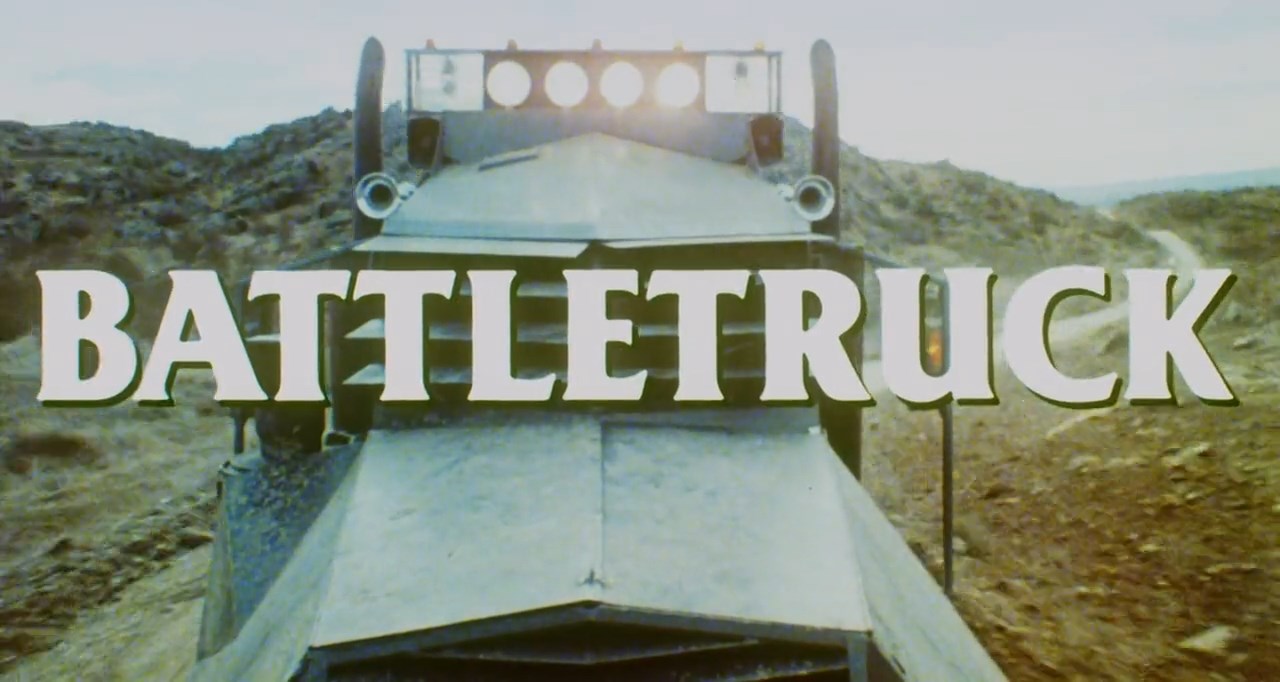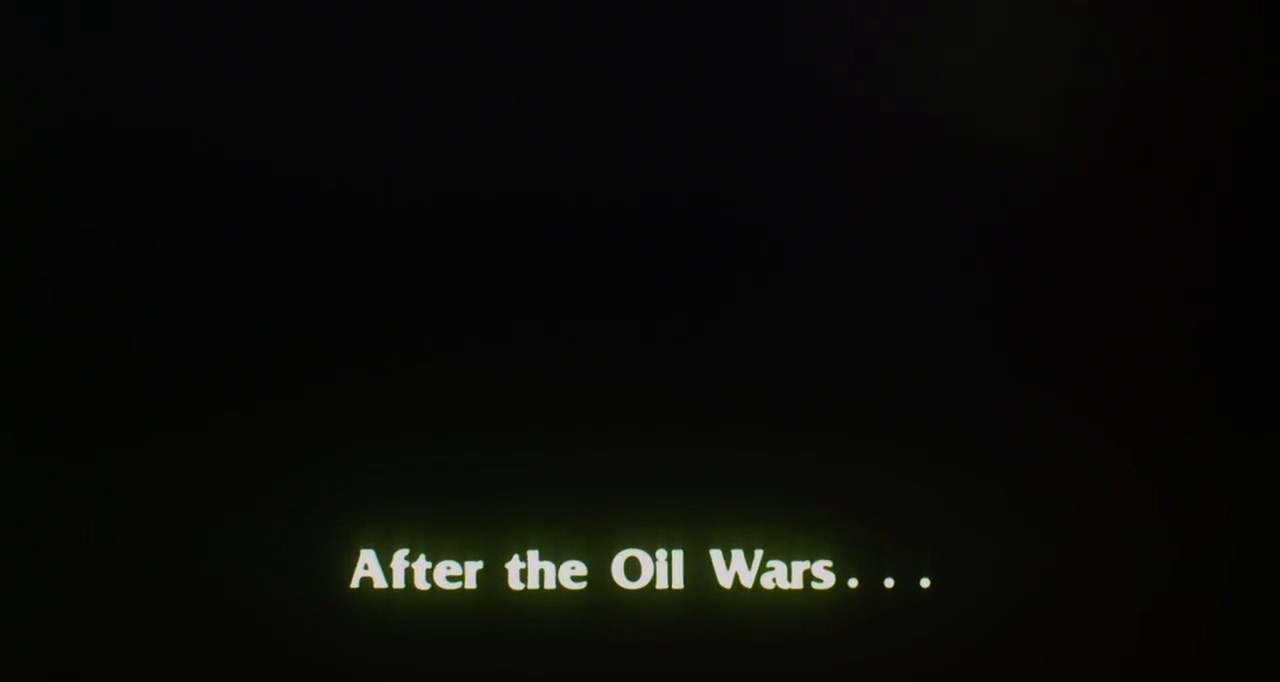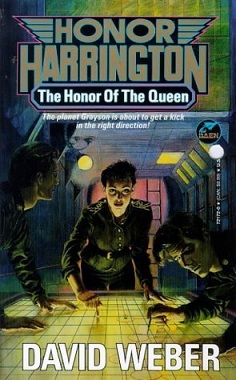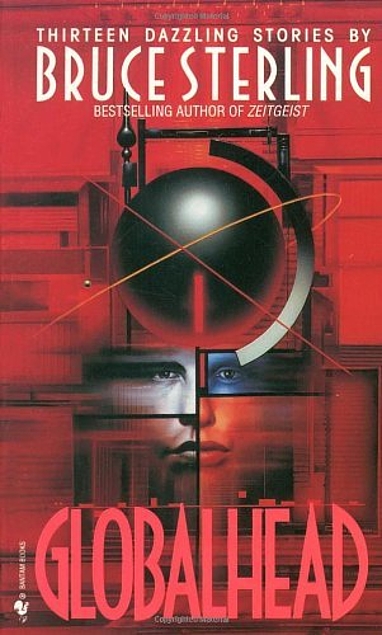In a post-apocalyptic world where oil is more valuable than gold, a lone renegade saves a peaceful community from a gang driving exotic, armoured vehicles. But this is not Mad Max, this is Mad Max‘s New Zealand, worse budget, worse actors cousin: Battletruck.

You have to love a movie with a title as straightforward as this. The main attraction is the Battletruck, so let’s name our movie Battletruck. Then the yanks came and renamed it Warlords of the 21st Century which sounds like it should’ve been one of those Italian redubbed in English sci-fi schlockers. If you’ve seen Mad Max II you know the plot of Battletruck. It all starts when the titular truck runs down a horse drawn wagon and discover diesel onboard. Killing one of the drivers, the other one tells the gang where to find a hidden storage depot full of the stuff. The gang’s leader, colonel Stracker decides this would make for a nifty new base. When he orders his daughter to kill the survivor, she refuses and sneaks out that night. Pursued by the gang, she’s saved when the motorcycle riding Hunter comes to her rescue. He brings her to Clearwater where she lives a peaceful life until Stracker and his battletruck attack. It’s up to Hunter to save them all…
Battletruck is supposed to be set in America, but with every supporting role done by New Zealand actors and with it being shot on location there, it makes much more sense to have the story take place there as well. Especially with a cast that looks as if they’d been cast for a socialist realist kitchen sink drama and got tricked into doing a post-apocalyptic actin thriller. It makes for a far more down to earth drama even if it’s the same plot as Mad Max II, when even the weapons are bolt action rifles rather than M-16s or Uzis. There’s a strange vibe to this movie because of those incongruities, which actually made it a bit more interesting than if this had been a schlick fully American production. A minus point is that the acting is often dreadful, though this is more the fault of the American mainliners than the New Zealand supporting cast. Hunter e.g. is played by Michael Beck, better know for his starring role in another futuristic motorcycle extravaganza, Megaforce. The actors playing Stracker and his wayward daugher are not much better. Not that you’re watching this for the action and the movie itself did kept my attention throughout.

The setting is interesting. A simple “After the Oil Wars…” followed by an expository news radio message talking about how the oil fields in the Middle East are now either radioactive or ‘still burning’, food riots have broken out, martial law declared in ‘greater Detroit’ and how the exodus from the cities is flooding the countryside where bandits roam but law enforcement is powerless as they’re dealing with the crisis in the cities. Unlike what you’d expect from the phrase “post-apocalyptic” this isn’t set after a full blown nuclear war, but society has still collapsed. It’s a setting Battletruck shares not only with Mad Max but also something like Escape from New York and other eighties sci-fi. A full nuclear apocalypse is too scary, too big for an action movie, but there’s also the feeling that it wouldn’t take that much to collapse (American) society anyway. That whole late seventies to mid eighties period there’s an underlying current of pessimism, the feeling that America is doomed even if the world itself isn’t. Gang violence, recession, losing the Vietnam war, inflation, it all seems as if America is crumbling from the inside and nobody cares. You see that feeling in a lot of near future American science fiction of the period. Not just movies, but also in comics like American Flagg! and Scout and novels like Neuromancer. It doesn’t really fit here because the feel of the movie itself is so very New Zealand, a country with its own problems but nothing quite like this.
A nice little entry into the post-apocalyptic action thriller genre. Not very original, not the best of acting but still worth watching nonetheless.

